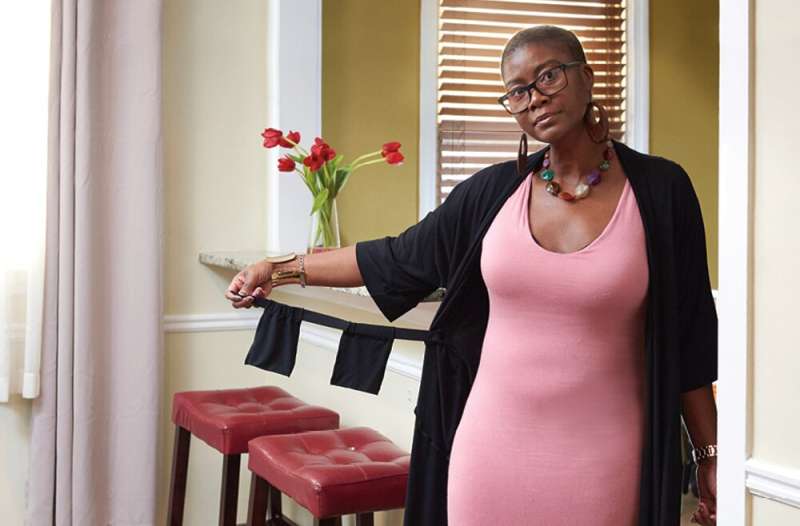The best new implants may be a piece of you

The future of medicine is often imagined to include some sort of high-tech or shiny device. But many cutting-edge therapies are fundamentally about using and improving upon what the body already has. There's CAR T therapy that uses engineered versions of the body's own immune cells to fight cancer. And for patients needing surgical interventions, there is autologous surgery.
Autologous surgery, implanting a patient with something taken from their own body instead of implanting a synthetic material or one from another donor, is continuing to be a go-to technique in various areas of surgical medicine.
"I've been placing autologous slings for 12 years," said Ariana Smith, MD, a professor of Urology and the director of Pelvic Medicine and Reconstructive Surgery at the Perelman School of Medicine at the University of Pennsylvania. "They offer patients peace of mind because they know the material being used to address their health concern is literally a piece of them."
For patients with stress urinary incontinence (a leakage of urine during physical movement such as laughing or sneezing) and pelvic organ prolapse (when the tissue and muscles of the pelvic floor no longer support the pelvic organs), a longstanding method has used surgical mesh—a piece of synthetic material surgically placed to reinforce the vaginal wall or support the urethra or neck of the bladder. Those tissues can weaken overtime due to childbirth, injury, weight gain, and in some cases, surgical complications. While mesh, placed carefully by an experienced surgeon, may be a suitable and successful implant for many patients, autologous surgery is an alternative.
It looks like this: Removing a small piece of tissue above the muscle near the bikini line, the surgeon uses sutures to configure the tissue into a sling, makes a vaginal incision, and positions the sling under the urethra or neck of the bladder. The autologous sling functions exactly like a mesh would, providing support and preventing leakage when a patient coughs, sneezes, laughs, or exercises.
The use of autologous tissue eliminates the risks of infection seen with synthetic materials and reduces the risk for subsequent surgery due to erosion of foreign materials. While studies are ongoing, clinicians and researchers believe that using slings or other materials from a patient's own body may limit the chance that their body treats the device as a foreign invader.
"While the patient's tissue may be in a new place and arranged differently, it's still familiar to their immune system," Smith said.
Autologous tissue surgery looks even better in light of an increasingly critical eye placed on mesh. After reports that transvaginal mesh, weakened, moved, or caused major complications for some patients, the FDA banned transvaginal mesh prolapse kit sales in April 2019, saying that those who make the products "have not demonstrated reasonable assurance of safety and effectiveness for these devices."
"When properly trained surgeons use and have used mesh with the right kind of patients, risks of these dangerous events decreases substantially," Smith said. "At Penn Urology, we use approved mesh in certain situations and when patients have been appropriately counseled on the risks and benefits. But we also receive countless referrals from around the region to treat patients who have had complications from mesh surgery and who may benefit from an autologous sling or prolapse surgery."
Looking to plastic surgery, it's easy to see other benefits of autologous surgery. Joseph Serletti, MD, chief of Penn Medicine Plastic Surgery, regularly performs autogenous free-flap surgery, otherwise known as non-implant based breast reconstruction surgery, for those who have had their breast or breasts removed, usually due to cancer or cancer risk. This technique uses excess lower abdominal fat and skin that is removed and transferred to the chest to create a new natural breast mound, avoiding the use of a breast implant. Surgeons at Penn Medicine perform more free flap surgeries in the United States than any other provider.
The result is a breast that will change naturally along with the rest of the body and tissue that does not have to be replaced like some implants do. It also looks, feels, and "behaves," like traditional breast tissue.
"There is a huge emotional component to plastic surgery," Serletti said. "As plastic surgeons, we're concerned with helping patients feel good, and that means feel good about their bodies, too."
"As doctors, we should always be seeking novel ways to bring the best care to patients, whether that's with the latest invention or through innovative techniques," Smith said. "Autologous surgery is invaluable because, in one way, it often provides more with less."



















